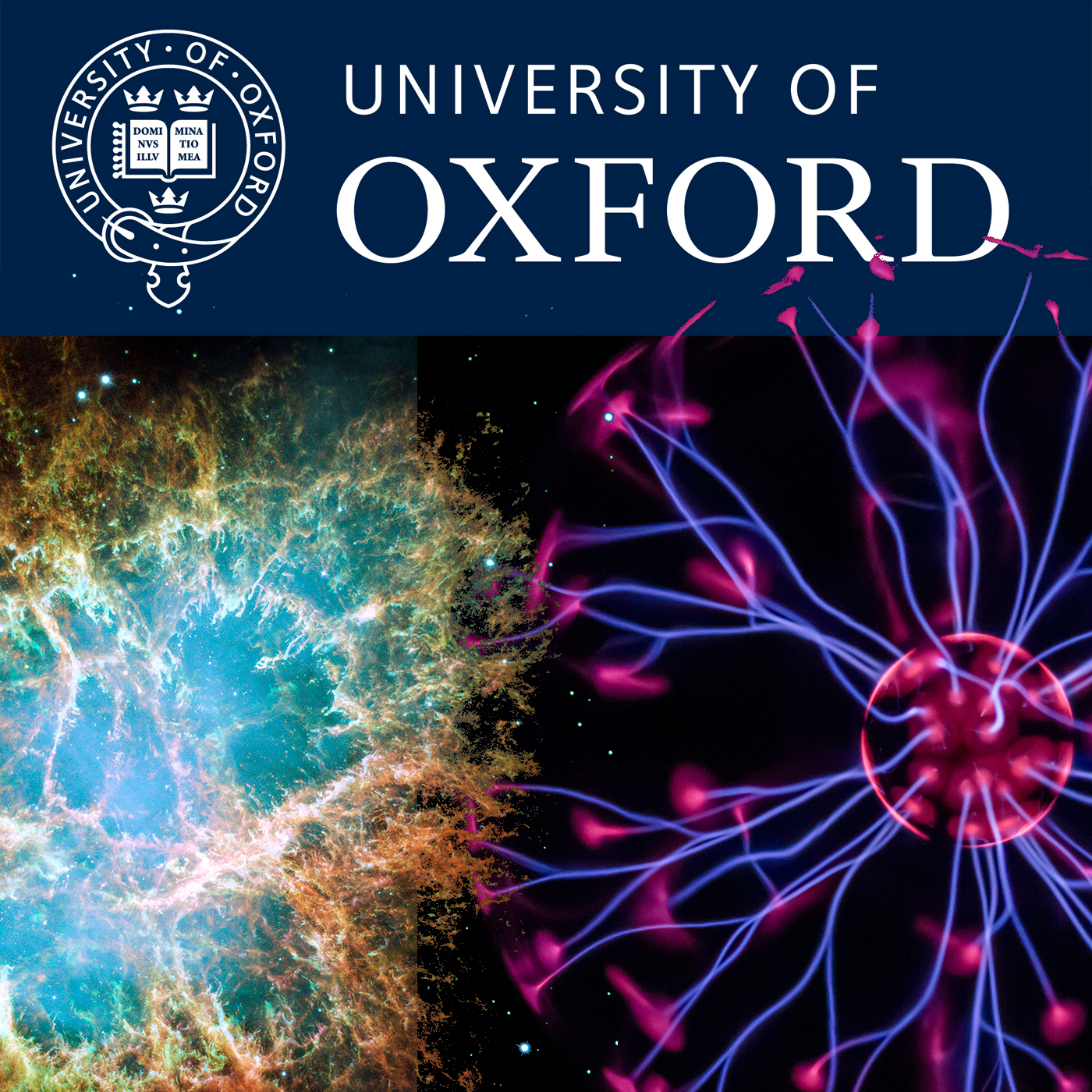

Theoretical Physics - From Outer Space to Plasma
Oxford University
Learn about quantum mechanics, black holes, dark matter, plasma, particle accelerators, the Large Hadron Collider and other key Theoretical Physics topics. The Rudolf Peierls Centre for Theoretical Physics holds morning sessions consisting of three talks, pitched to explain an area of our research to an audience familiar with physics at about second-year undergraduate level.
Episodes
Mentioned books

Jan 16, 2021 • 36min
Classical and Quantum Black Holes
Prof March-Russell explains our latest understanding of black holes, some of the most mysterious objects in the Universe.

Jan 16, 2021 • 33min
Why is Quantum Gravity so hard?
A pressing question in our quest to understand the Universe is how to unify quantum mechanics and gravity, the very small and the very large.

Mar 22, 2020 • 37min
Machine learning techniques in modern quantum-mechanics experiments
In this talk, Dr Elliott Bentine shall discuss how recent experiments have exploited machine-learning techniques, both to optimize the operation of these devices and to interperet the data they produce. Modern table-top experiments can engineer physical systems that are deeply into the quantum mechanical regime. These cutting-edge instruments provide new insights into fundamental physics, and a pathway to future devices that will harness the power of quantum mechanics. They typically require complex operations to prepare and control the quantum state, involving time-dependent sequences of magnetic, electric and laser fields. This presents experimental physicists with an overwhelming number of tunable parameters, which may be subject to uncertainty or fluctuations.

Mar 22, 2020 • 52min
Machine Learning and String Theory
Professor Andre Lukas will discuss how string theorists have started to use methods from data science - particularly machine learning - to analyse the vast landscape of string data.

Mar 22, 2020 • 53min
An Introduction to deep learning
Professor Ard Louis gives a basic introduction to deep learning for physicists and addresses a few questions such as: Is the hype around deep learning justified, or are we about to hit some fundamental limitations? In less than ten years, machine learning techniques based on deep neural networks have moved from relative obscurity to central stage in the AI industry. Large firms such as Google and Facebook are pouring billions into research and development of these new technologies. The use of deep learning in physics is also growing exponentially. Can physics help us understand why deep learning works so well? And conversely: How can deep learning provide new insight into the world around us?

Mar 22, 2020 • 6min
Welcome by Ian Shipsey Head of the Department of Physics
Ian Shipsey give an update on the department and introduces the next three talk on 'AI in Physics'.

Nov 1, 2019 • 41min
Cosmic acceleration revealed by Type la supernovae?
In this talk Subir Sarkar will explain how deflagration supernovae have been used to infer that the Hubble expansion rate is accelerating, and critically assess whether the acceleration is real and due to `dark energy’.

Nov 1, 2019 • 49min
Supernova Explosions and their Role in the Universe
In this talk, Philipp Podsiadlowski will explain how this energy (sometimes) creates a visible fireball, before going on to explain the role of supernovae in the production of the heaviest elements in the periodic table.

Nov 1, 2019 • 47min
What makes stars go bang?
In this talk, James Binney will outline the physics that leads to prodigeous release of energy in core-collapse and deflagration supernovae.

May 16, 2019 • 35min
... from collisions to the Higgs boson
To study the Higgs boson at the LHC we also need to understand how highly energetic quarks and gluons interact, among themselves and with the Higgs. These interactions are described by quantum field theory, a beautiful mathematical framework that combines quantum mechanics with Einstein’s theory of special relativity. In recent years, our understanding of quantum field theory has progressed significantly, allowing us to develop a new generation of accurate theoretical predictions for key LHC reactions. In this talk, I will highlight some of the ideas behind this progress, and illustrate how they are being applied to investigate the Higgs sector at the LHC.


